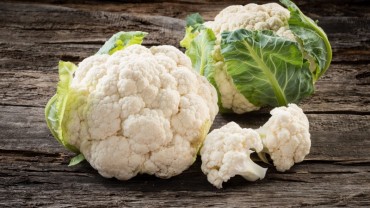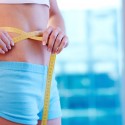7 Evidence-Based Hangover Cures and Remedies
What is a Hangover?
A night of drinking can be a lot of fun.
The morning after, however, can be less so.
One of the worst things about drinking alcohol is the potential for a hangover the next day.
A hangover happens after the alcohol has been burned off by our bodies, and its characteristic symptoms include headache, tiredness, loss of appetite, and nausea.
Some people report symptoms so bad that they can barely walk.
Although everyone experiences a different degree of unpleasant symptoms, it’s not something that anyone enjoys (1).
Given how much many people like to drink and that we don’t like having to deal with hangovers, it should come as no surprise that many hangover “cures” are available to keep the pain at bay.
Most of these are either weird concoctions invented in a college dorm during a painful morning or elixirs marketed by industrious companies, none of which have much actual evidence behind them (2).
Don’t wait until the morning when the hangover has already hit to start thinking about reducing the pain.
Instead, be prepared with these seven science-backed ways to eliminate, or at least reduce, the severity of your hangover.
Skip the Cocktails
The more you drink, the worse the hangover can be, so the first tip is to just not drink or at least drink less (3).
The only headache you might get then is from staying up too late.
Doing this is the best and most reliable way to prevent a hangover because you’re stopping it before it starts by eliminating the cause.
If you’re worried about the social implications of not having a drink in your hand, most bars will serve virgin versions of your favorites, so there isn’t any alcohol in your drink, and they tend to be lighter on your wallet too.
Drinking a soda or some water instead is the easiest way to avoid the hangover.
Plus, you can be the driver if a friend takes the drinks a bit too far, and you’ll be saving yourself from potentially embarrassing Facebook tags.
If you don’t want to abstain completely, you can still drink — just less.
Some people can have a drink or two with no ill effects later.
Unless you’re one of the 23% of people who just don’t seem to get a hangover no matter how much they drink, imbibing less is a surefire way to reduce or eliminate the hangover (4).
Bottom line: Less is best.
Avoid Toxic By-Products
The main active ingredient in alcoholic drinks is ethanol, which is the chemical responsible for its intoxicating effects.
Alcoholic drinks are produced by yeasts fermenting sugar in a solution.
During this process, other toxic by-products are formed, which are called congeners (5).
These congeners are formed in small amounts, but they can have a major effect in amplifying the severity of hangovers.
Some of the most known congeners are acetone, methanol, and isopentanol (6, 7).
Drinks that are exceptionally high in congeners include tequila, cognac, and whiskey.
Bourbon whiskey has the highest amount of these by-products.
Vodka is extremely low in congeners.
It was used in a study to compare hangovers from drinks with differing levels of congeners, using vodka and whiskey as the main focus.
Researchers found that both the intensity and duration of the hangover was less in the vodka group (8, 9, 10).
Colorless alcohols seem to have the least congeners overall.
Vodka is a great example as is gin and rum.
Adding more support to this conclusion are two studies that looked specifically at methanol and its role in hangovers.
Methanol was shown to be strongly associated with the symptoms of hangovers (11, 12).
Bottom line: Clear alcohols with fewer congeners will result in less pain.
The Cure is in the Poison
You might want to swear off alcohol entirely when you experience a hangover, but the cure for your pain might be a small drink in the morning.
It’s commonly referred to as the “Hair of the Dog (that bit you),” meaning that a little bit of what hurt you also have the potential to help (13).
It seems counterintuitive, but many people swear by this method.
The way it works is based on metabolism.
That morning drink (with its ethanol content) can affect the way we process the methanol (a nasty cogener).
Methanol can be converted to formaldehyde when it’s broken down, and formaldehyde is highly toxic, which is another cause for the nastiness of hangovers (14, 15, 16).
When you have an alcoholic drink the next day, the ethanol blocks the metabolism of the methanol, preventing its conversion to formaldehyde.
All these substances are then harmlessly excreted through urine and breath (17, 18).
Ethanol is frequently used for just this reason in the treatment of methanol poisoning (19).
Despite the possible effectiveness of this method, it isn’t recommended, as this behavior can be associated with disordered drinking, and beating a hangover isn’t a good enough reason to risk alcoholism.
Bottom line: A drink in the morning might help block a hangover, but it has risks.
Hail, Hydrate
It’s well known that alcohol makes you have to hit the bathroom.
It has a diuretic effect, meaning that it makes your body release more liquid than if you were drinking plain water.
This is the major way alcohol can cause dehydration (20, 21, 22).
While dehydration isn’t said to be the leading cause of hangovers, it’s certainly a contributing factor.
To avoid such symptoms as extreme thirst, headache, and fatigue, it’s important to get enough water.
It’s a good idea to use the same rule for alcohol as you should for coffee.
For each alcoholic drink you have, drink one glass of water before moving on to another drink.
Follow this with one large glass of water right before bed.
Any extra trips to the bathroom will be worth the pain-free morning.
Also, don’t stop hydrating the night of drinking.
With the added stress on your body, it’s a good idea to have extra water for the next few days to help flush those alcohol by-products from your system faster.
Bottom line: Headache and thirst can be warded off by drinking plenty of water.
Get Your Beauty Sleep
Drinking can disrupt your sleeping patterns.
You can expect reduced sleep quality after a night of drinking, and your normal sleeping rhythms can also be disrupted after too late of the night (23, 24).
Poor sleep is associated with fatigue and also with a headache and irritability that can come with a hangover.
Getting plenty of sleep can give your body a chance to burn off the alcohol and recover from all the drinks.
As a general rule, aim for ten hours of sleep after a night of drinking as well as the following night.
If you find the amount of sleep to be insufficient, try taking it easy the next day and plan for an early night to make up for it.
Many people feel guilty for overindulging, so they continue with their normal obligations the next day, such as going to work or school.
Try to keep your drinking to nights where you have few obligations the next day so that you can take time to rest.
Bottom line: Drinking can harm your sleep, so make sure you plan enough time to sleep in and relax the next day.
Eat the Most Important Meal of the Day
Sometimes hangovers are associated with lower blood sugar levels, known as hypoglycemia (25).
Moreover, hangovers tend to be more intense for those who suffer from normally low blood sugar (26, 27).
Hypoglycemia isn’t a direct cause of hangovers.
Instead, it’s a side effect that can cause headaches and weakness as well as dizziness and changes in appetite (28).
Try to avoid the leftover pizza and aim for fruits, such as bananas and apples, and healthful proteins, such as eggs or fish.
Alcohol consumption can also deplete the vitamins and minerals we need to heal from our night of imbibing.
When you drink, the body quickly uses up stores of vitamins B and C.
These are also critical for the liver to function properly, and we know that drinking puts a lot of stress on the liver, so it makes sense to replace these vitamins and minerals as quickly as possible.
Foods that are rich in these vitamins, which also support liver function, are cruciferous veggies, such as broccoli and cabbage, as well as avocados, onions, and dark leafy greens.
Try planning for an omelet or a stir-fry, which would be a great way to start the day, especially if friends have stayed the night (29).
Freshly squeezed orange juice can hasten your recovery time too.
Since it has the kinds of sugars your body can use quickly for energy and is high in vitamin C and other minerals, it can also hydrate and help you get on your feet faster (30).
Bottom line: A nutritious breakfast is a well-known and science-backed hangover remedy that will help maintain proper blood sugar balance and reduce hangover intensity and duration.
Smart Supplementation
Inflammation is a normal process in the body that helps to heal damage to our tissues.
It’s thought that many hangover symptoms are caused by whole-body, low-grade inflammation (31, 32).
This theory was tested by administering certain anti-inflammatory drugs that have been shown to be quite effective as a hangover remedy (33).
Many healthful, plant-based foods and herbal remedies may also help reduce inflammation and keep the hangover at bay.
Supplements that have been effective in studies include red ginseng (34), ginger (35), and prickly pear (36).
Red ginseng and ginger are great additions in the morning.
Ginseng is known as a mild stimulant, so it will help you function more normally.
Ginger is excellent for calming an irritated stomach, and it’s well known among pregnant mothers and those with motion sickness.
Prickly pear is especially notable.
This fruit from a cactus that is native to Mexico was shown to reduce the risk of a severe hangover by 62% when the extract was taken five hours before drinking (37).
It may not completely prevent the hangover, but the reduced chance of suffering might be worth a try.
Another smart addition is milk thistle, which has been shown to greatly improve liver function and help restore it from cellular damage.
It’s known in traditional cultures as a remedy for hangovers, and it’s proven helpful for many people.
It’s so powerful that it’s even used to treat such diseases as fatty liver and the ingestion of the toxic death cap mushrooms (38).
It’s easily found online and in health food stores in capsules or as a tea.
It has a mild, pleasant taste and can often be found mixed with other liver-boosting herbs, such as dandelion, burdock, and red clover.
Plus, if you add a tea of valerian root before you go to bed, you’ll not only get extra water, but the valerian will also help you sleep more soundly and wake more rested (39).
It doesn’t taste particularly good, though, so look for capsules or extracts unless you can brave strong, earthy flavors.
Bottom line: Reducing inflammation and adding certain herbs, vitamins, and drugs can help relieve a hangover and possibly even before it starts.
Bonus Tip
Since drinking alcohol can contribute to dehydration by your having to make extra trips to the bathroom, you should be aware that each time you urinate, especially from drinking alcohol and other dehydrating drinks, such as coffee, you’re pulling essential electrolytes from your body.
These electrolytes, which are sodium, potassium, magnesium, and calcium, are responsible for many functions, including energy balance and muscle function (40).
Depletion of these electrolytes has been implicated in the severe headaches some people experience with hangovers as well as the fatigue both at the end of the night and through the next day.
Certain flavored tablets, powders, and liquid additives, and even some vitamins and minerals have electrolytes that can be added to water to help restore correct electrolyte balance.
You can often find these in the sports section of stores since electrolyte loss is a common issue for athletes.
Choose flavors that don’t have artificial sweeteners, since these can make the dehydration worse and add another chemical to the mix.
Sports drinks are an acceptable choice, but they’re generally low in the nutrients you need and pretty high in sugar, so read ingredients carefully.
For this reason, try adding coconut water.
It’s high in electrolytes and minerals and is a more natural source than some other brightly colored beverages (41).
Bottom line: Add electrolytes to your hydration plan to supercharge your recovery time.
FDA Compliance
The information on this website has not been evaluated by the Food & Drug Administration or any other medical body. We do not aim to diagnose, treat, cure or prevent any illness or disease. Information is shared for educational purposes only. You must consult your doctor before acting on any content on this website, especially if you are pregnant, nursing, taking medication, or have a medical condition.
HOW WOULD YOU RATE THIS ARTICLE?







How do you think can alchohol cause insomnia???After a night of fun I’m not able to sleep for a 5-7 days((((….
Hello Beverly! Yes, alcohol drinking may cause insomnia. It would be better for you not to drink alcohol if you experience such problems.
What alcohol should I drink to avoid heavy hangovers?
In the morning after a party a crave for some fat burger…It really helps me. But is this good for me? Should I eat some veggie vitamins-loaded salad?
What can I add to the water to survive hangover? I’m not a fan of coconut water.